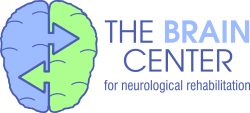Symptoms of a TBI can be mild, moderate, or severe, depending on the extent of the damage to the brain. Some symptoms are evident immediately, while others do not surface until several days or weeks after the injury. A person with a mild TBI may remain conscious or may experience a loss of consciousness for a few seconds or minutes. The person may also feel dazed or not like himself for several days or weeks after the initial injury. Other symptoms of mild TBI include headache, confusion, lightheadedness, dizziness, blurred vision or tired eyes, ringing in the ears, bad taste in the mouth, fatigue or lethargy, a change in sleep patterns, behavioral or mood changes, and trouble with memory, concentration, attention, or thinking.
A person with a moderate or severe TBI may show these same symptoms, but may also have a headache that gets worse or does not go away, repeated vomiting or nausea, convulsions or seizures, inability to awaken from sleep, dilation of one or both pupils of the eyes, slurred speech, weakness or numbness in the extremities, loss of coordination, and/or increased confusion, restlessness, or agitation. Small children with moderate to severe TBI may show some of these signs as well as signs specific to young children, such as persistent crying, inability to be consoled, and/or refusal to nurse or eat. Anyone with signs of moderate or severe TBI should receive medical attention as soon as possible.
